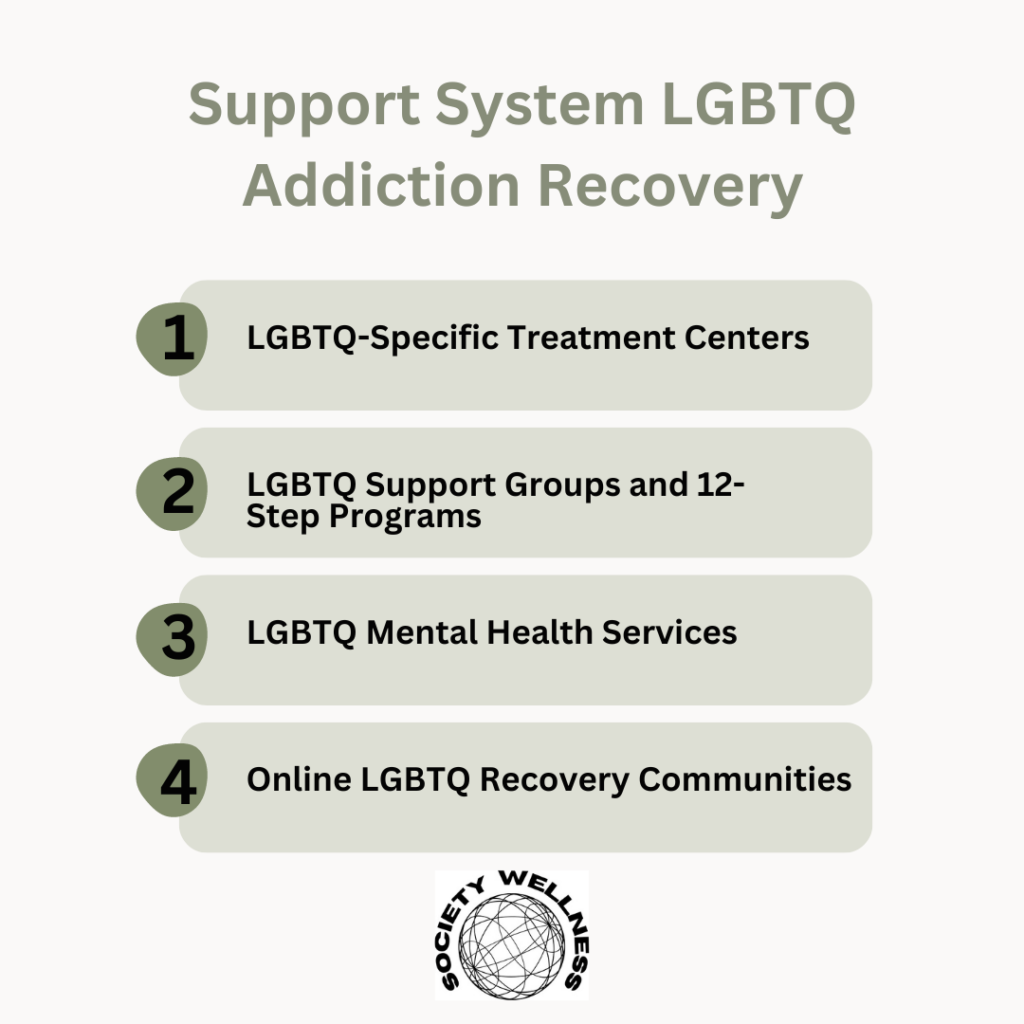No one wants to get addicted, but sometimes situations are not under control that insists us to take the help of substances. Regardless of age, gender, nationality, ethnicity, class, or sexual orientation, it can affect anyone at any time. Nonetheless, some populations are more vulnerable than others to developing a drug or alcohol addiction.
Unfortunately, the LGBTQ community can attest to this. This is primarily due to the mental health illnesses that arise in this community as a result of the mistreatment, prejudice, rejection, and exclusion that they experience. But, the good news is that there are lots of resources available to assist people in this community in overcoming drug usage.
So, if you are someone who belongs to the LGBT, LGBTQ, and LGBTQ+ community, then read this article and uncover the resources that can help you restart your life.
Why the LGBTQ Community is Affected by Substance: Reasons You Must Know!
Before diving into the resources, let’s figure out the reasons they indulge in substance addiction.
Discrimination and Stigma: A large number of LGBTQ people have encountered stigma and prejudice in both society and healthcare settings. This may result in resistance to asking for assistance, anxiety about being judged, and doubt about conventional treatment facilities.
Mental Health Concerns: Due to the pressures of cultural acceptance and internalized homophobia or transphobia, LGBTQ people are more prone to develop mental health problems like despair, anxiety, and trauma. These problems frequently coexist with substance misuse, resulting in a complicated cycle that necessitates expert care.
Isolation: Feelings of isolation can result from fears of rejection from friends, family, or even the larger LGBTQ community. Substance abuse as a coping strategy may worsen as a result of this isolation.

1. LGBTQ-Specific Treatment Centers
One of the most effective resources for LGBTQ individuals in recovery is accessing LGBTQ addiction centers. These centers are designed with an understanding of the unique challenges that LGBTQ individuals may face in their recovery journey, such as discrimination, rejection from family, and issues related to mental health.
Benefits of LGBTQ-Specific Treatment:
- Inclusive Care: LGBTQ-specific centers offer affirming environments where individuals can openly discuss their identity and experiences without judgment.
- Culturally Competent Staff: Therapists and medical professionals trained in LGBTQ issues provide care that is both respectful and empathetic to the unique concerns of the community.
- Targeted Therapy: Treatment plans are designed to address both addiction and co-occurring mental health conditions that may stem from identity struggles, trauma, or discrimination.
2. LGBTQ Support Groups and 12-Step Programs
Peer support is a crucial element of addiction recovery. Many LGBTQ individuals find it helpful to participate in LGBTQ-specific support groups and 12-step programs that provide a sense of community, connection, and understanding.
Benefits of LGBTQ Support Groups:
- Shared Experiences: Group members who understand the unique pressures and challenges of being LGBTQ can relate on a deeper level, offering mutual support.
- Safe Space: LGBTQ support groups create environments where individuals can freely express their experiences and challenges without fear of stigma.
- Accountability: Peer groups offer accountability, helping individuals stay committed to their recovery goals while building long-term sobriety.
3. LGBTQ Mental Health Services
Many LGBTQ individuals struggling with addiction also face co-occurring mental health disorders such as depression, anxiety, or PTSD. These issues may stem from discrimination, rejection, or trauma. Having access to LGBTQ-friendly mental health services is vital in addressing these underlying factors during recovery.
Mental Health Resources for LGBTQ Individuals:
- Therapists Specializing in LGBTQ Issues: Finding a therapist who specializes in LGBTQ mental health can make a significant difference in recovery by ensuring that the individual’s identity is respected and supported.
- LGBTQ Crisis and Counseling Hotlines: Hotlines such as the Trevor Project or the LGBT National Help Center provide immediate mental health support for individuals in crisis, helping those in need navigate through difficult times.
- Holistic Mental Health Programs: Many LGBTQ rehab centers offer holistic approaches, including trauma-informed care and specialized therapies like Cognitive Behavioral Therapy (CBT) and Dialectical Behavior Therapy (DBT), tailored to meet the needs of LGBTQ individuals.
4. Online LGBTQ Recovery Communities
In today’s digital age, online platforms have become invaluable resources for LGBTQ individuals in recovery. Virtual recovery communities offer a safe space to connect with peers, access educational resources, and participate in support groups, all from the comfort of home.
Benefits of Online LGBTQ Recovery Communities:
- Accessibility: Online communities make it easier for individuals to find support, especially if they live in areas without LGBTQ-specific recovery programs.
- Anonymity: Some individuals may prefer the anonymity that online communities provide, which can make it easier to open up and participate in discussions.
- 24/7 Support: Online platforms allow individuals to seek help and connect with others at any time of the day, offering continuous support throughout the recovery process.
Special LGBTQ Support Systems and Addiction Recovery Sources
Several organizations like Society Wellness have created particular resources to assist LGBTQ people. The following are a few of the best resources and support networks out there:
LGBTQ-Specific Treatment Centers: These facilities cater only to the needs of the LGBTQ community and provide culturally competent care that comprehends each patient’s distinctive experiences. These facilities assist lessen the fear of criticism and raise the possibility of a successful recovery by offering a secure and supportive atmosphere.
LGBTQ-Friendly Support Groups: Meetings hosted by organizations such as Alcoholics Anonymous (AA) and Narcotics Anonymous (NA) frequently have LGBTQ-specific sessions, providing a safe and judgment-free environment for members to discuss their experiences. For those in recovery, these organizations provide a sense of understanding and community that may be quite helpful.
Online Communities: These might be a lifeline for people who do not have access to LGBTQ-specific services locally. Social media platforms such as Soberocity, The Tribe, and Reddit’s provide a network of support and connections for people facing comparable challenges. These sites offer a forum for exchanging tales, asking for counsel, and finding support.
Mental Health Services: It’s imperative to have access to LGBTQ-friendly counselors and therapists. Many mental health service providers have experience dealing with LGBTQ clients and are aware of the connection that exists between drug addiction and mental health in this group. Individuals can be connected to these services with the assistance of organizations such as Society Wellness.
Family and Friends: Creating a network of family and friends who affirm LGBTQ identities and are supportive is essential. Open communication and education can make family members allies in the healing process, providing them with understanding and support without passing judgment.
How to access LGBTQ resources?
To access LGBTQ resources, Society Wellness is one of the best LGBT substance abuse treatment centers to connect with. They can help you look for special treatment, join support groups, and connect with LGBT therapists who can heal your soul and bring a new version of you. Call today at:(888) 598-9510!
FAQs: Support Systems and Resources for LGBTQ+ Addiction Recovery
What are the unique challenges faced by LGBTQ+ individuals in recovery?
LGBTQ+ individuals may face additional challenges in recovery due to factors such as discrimination, stigma, and minority stress. These challenges can make it difficult to seek help and maintain sobriety.
Why is a supportive community important for LGBTQ+ individuals in recovery?
A supportive community can provide LGBTQ+ individuals in recovery with the emotional support, encouragement, and understanding they need to succeed. It can also help to reduce feelings of isolation and stigma.
When should I seek professional help for addiction?
If you or someone you know is struggling with addiction, it’s important to seek professional help as soon as possible. There are many effective treatment options available, and seeking help can improve your chances of recovery.
